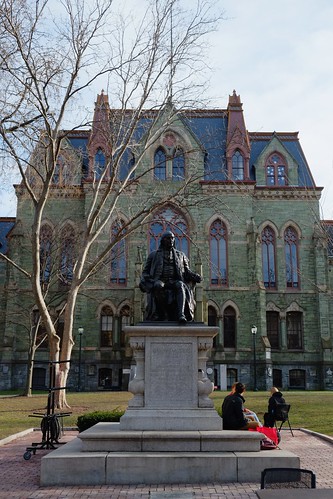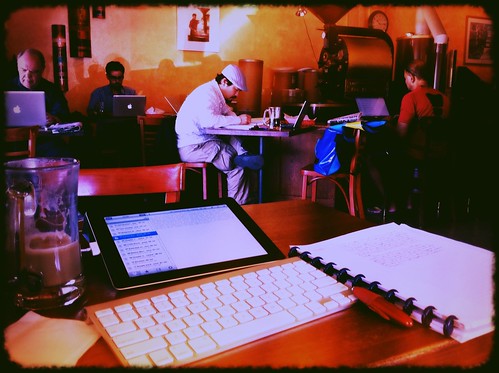When I was an undergraduate at Penn, one of the graduate students I met was an historian of American technology named Deborah Fitzgerald. Later, when I taught American technology I enjoyed walking students through one of her articles, on the history of hybrid corn and the deskilling of farmers (this was especially resonant when I was teaching at UC Davis, which had deep ties to California agriculture).
Deborah went on to become a professor at MIT (and thus, when I was a grad student, A Model For Us All), and recently finished a decade as a dean. She’s published a piece about coming back to departmental life discovering that “Our Hallways Are Too Quiet“:
When I recently returned to my department after a decade in administration… I had only one question as I looked around my department: Where did everybody go?
A 10-year absence presented a fairly stark before-and-after picture of a very real transformation that is happening on our campuses. Many faculty rarely come into their offices anymore.
Entire departments can seem like dead zones, and whole days can pass with only a glimpse of a faculty member as someone comes to campus to meet a student, attend a meeting, or teach a class. The halls are eerily quiet. Students, having figured this out, are also absent. Only the staff are present.
What accounts for the change? Part of it is technology: as intellectual work has become ever more mobile, faculty tend to work in places other than their offices.
The rise of more family-friendly, work-at-home policies has also had the unintended effect of sanctioning more time away.*
As a result,
We seem to be losing our sense of the commons, and perhaps our empathy for the trials and tribulations of academic life. In privileging the individual faculty member’s particular circumstances and preferences, we may be threatening the department itself.
I’d add three other factors pushing people away from departmental life.
First, the pressures to do research and publish create strong incentives to focus on that work, and can make hanging out in the department seem like a waste of time. The number of articles and books you’re expected to have published to get promotion have gone up in the last thirty years, and so naturally people respond by spending more time on that work.
Second, the university’s addiction to temporary faculty, who may divide their time between several campuses, reduces the number of people who can devote time to departmental culture.
Finally, the increasing specialization of academic life means that it’s easy to see yourself as part of an “imagined community” of fellow specialists spread around the world. The people on the same hallway, in contrast, become accidental neighbors who aren’t really worth talking to, and from whom you don’t have much to learn. It’s like living in a big apartment building: you might have a hundred people on your floor, but you don’t know any of them.


